CORPORATE ACTION
Plastic Industry Set To Overtake Coal-Fired Power Plants In Producing Gas Emissions, Report Says
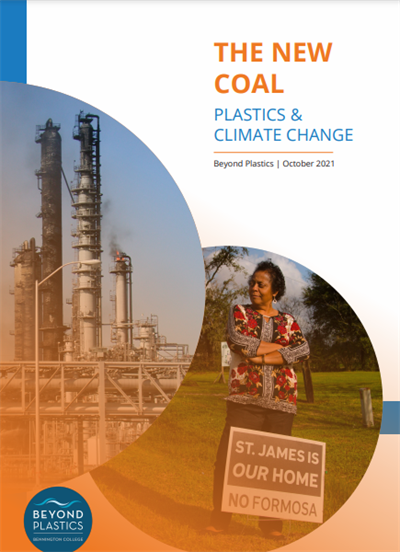 The plastic industry produces planet-warming emissions at every step of the life cycle of its main product and at volumes that could become bigger than those produced by coal-fired power plants by the end of the current decade.
The plastic industry produces planet-warming emissions at every step of the life cycle of its main product and at volumes that could become bigger than those produced by coal-fired power plants by the end of the current decade.Data from the report, “The New Coal: Plastics & Climate Change,” from the environmental advocacy group Beyond Plastics, revealed plastic brings about greenhouse emissions that threaten climate goals and hurt socio-economically disadvantaged communities.
The report also reveals that plastic manufacturing produces gas emissions of at least 114 million tons of carbon dioxide-equivalent in the US, equal to those produced by 57 500-megawatt coal-fired power plants.
Also, the petrochemical industry’s plastics manufacturing infrastructure is expected to continue expanding.[Image Credit: © Beyond Plastics]
CORPORATE ACTION: Amazon
Amazon France Announces Plan To Replace Plastic Shipping Package By End Of 2021
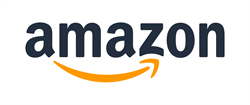 Online retailer Amazon said it plans to replace plastic shipping packaging in France with paper or cardboard by the end of 2021. However, contrary to the company’s initial statement, it will continue using bubble wrap, plastic cushions, and kraft paper. Amazon also said that this action will cover only products it ships to customers, and not those shipped directly by third-party sellers.[Image Credit: © Amazon]
Online retailer Amazon said it plans to replace plastic shipping packaging in France with paper or cardboard by the end of 2021. However, contrary to the company’s initial statement, it will continue using bubble wrap, plastic cushions, and kraft paper. Amazon also said that this action will cover only products it ships to customers, and not those shipped directly by third-party sellers.[Image Credit: © Amazon]
CORPORATE ACTION: Colgate
Colgate’s Samson Tube Receives RecyClass Approval As Recyclable In HDPE Containers
 RecyClass has certified the ‘Samson Tube with Colgate Total artwork technology’ as recyclable in high-density polyethylene (HDPE) containers. The technology, which underwent independent laboratory testing, is designed for use in oral care products. Colgate said the tube is a fully printed HDPE tube that comes with EVOH-barrier designed to be compatible with maleic anhydride grafted polyethylene (PE-g-MAH). The tube comes with decoration made of printed blue and red tones, representing less than 1% of the tube’s total weight.[Image Credit: © Colgate-Palmolive]
RecyClass has certified the ‘Samson Tube with Colgate Total artwork technology’ as recyclable in high-density polyethylene (HDPE) containers. The technology, which underwent independent laboratory testing, is designed for use in oral care products. Colgate said the tube is a fully printed HDPE tube that comes with EVOH-barrier designed to be compatible with maleic anhydride grafted polyethylene (PE-g-MAH). The tube comes with decoration made of printed blue and red tones, representing less than 1% of the tube’s total weight.[Image Credit: © Colgate-Palmolive]
CORPORATE ACTION: Henkel
Henkel Issues Two Sustainability-Related Bonds Worth 720 Million Euros
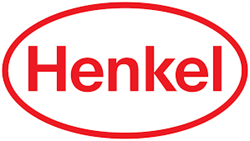 Henkel has issued two sustainability-connected bonds under its Sustainable Finance Framework. The first bond is valued at 500 million euros, with maturity of 11 years and an interest rate of 0.5%; the other bond comes with a value of $250 million, a five-year maturity period, and an interest rate of 1.8%. These bonds make the company the first ever to issue such bonds in the Eurodollar market. The bonds come with financing costs that are connected to how the company performs regarding its sustainability goals.[Image Credit: © Henkel]
Henkel has issued two sustainability-connected bonds under its Sustainable Finance Framework. The first bond is valued at 500 million euros, with maturity of 11 years and an interest rate of 0.5%; the other bond comes with a value of $250 million, a five-year maturity period, and an interest rate of 1.8%. These bonds make the company the first ever to issue such bonds in the Eurodollar market. The bonds come with financing costs that are connected to how the company performs regarding its sustainability goals.[Image Credit: © Henkel]
CORPORATE ACTION: Procter & Gamble
P&G Marks America Recycles Day By Working Toward 2030 Sustainability Goals
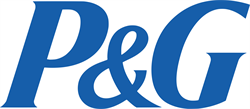 Procter & Gamble said 55% of its total consumer packaging is recyclable or reusable as of November 12, 2021. The company said its brands are revising and rethinking their packaging by reducing, reusing, or recycling, as part of efforts to meet its 100% reusable or recyclable packaging objective by 2030. Also, the company is encouraging consumers to reuse and recycle at home and in their communities, and is working to prevent waste from intruding into nature.[Image Credit: © Procter & Gamble]
Procter & Gamble said 55% of its total consumer packaging is recyclable or reusable as of November 12, 2021. The company said its brands are revising and rethinking their packaging by reducing, reusing, or recycling, as part of efforts to meet its 100% reusable or recyclable packaging objective by 2030. Also, the company is encouraging consumers to reuse and recycle at home and in their communities, and is working to prevent waste from intruding into nature.[Image Credit: © Procter & Gamble]
Herbal Essences To Start Using Eastman Renew Recycled Plastic For Packaging
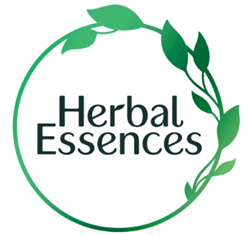
Procter & Gamble said its haircare brand Herbal Essences will start using Eastman Renew molecular-recycled plastic for its packaging in November 2021. Herbal Essences will introduce five shampoo and conditioner collections with primary packaging made from Eastman Renew resins with 50% certified recycled plastic. The companies announced a deal in August 2021 to work together in pushing the recycling of materials, promoting recycling, and preventing plastic from going to waste.[Image Credit: © Procter & Gamble]
CORPORATE ACTION: Unilever
Unilever, Co-op Tests Refillable And Reusable Packaging Systems
.jpg&width=250&height=188) Unilever has partnered with the Co-op in the UK to conduct a store-based trial of the “Refill on the go” and “Return on the go” refill packaging models. The test run will involve Unilever’s Persil, Simple, Radox, and Alberto Balsam brands, and marks the company’s first time to conduct such a test in a convenience store setting. The company expects to gain a deeper understanding of consumer behavior regarding refillable and reusable packaging from the trial.[Image Credit: © Unilever plc]
Unilever has partnered with the Co-op in the UK to conduct a store-based trial of the “Refill on the go” and “Return on the go” refill packaging models. The test run will involve Unilever’s Persil, Simple, Radox, and Alberto Balsam brands, and marks the company’s first time to conduct such a test in a convenience store setting. The company expects to gain a deeper understanding of consumer behavior regarding refillable and reusable packaging from the trial.[Image Credit: © Unilever plc]
CORPORATE ACTION: Other
SC Johnson Meets PCR Plastic Packaging Goal Four Years Earlier Than Original Target
 SC Johnson revealed that post-consumer recycled plastics will account for 19% of the company’s total packaging output for 2021, in the process surpassing its target of 15% four years ahead of schedule. In 2020, PCR plastics accounted for 14% of the company’s packaging output. Some of the changes in SC Johnson’s packaging included using 100% PCR plastics for Windex bottles and testing a washing-up liquid bottle made from 50% ocean plastic through the company’s Ecover brand.[Image Credit: © SC Johnson]
SC Johnson revealed that post-consumer recycled plastics will account for 19% of the company’s total packaging output for 2021, in the process surpassing its target of 15% four years ahead of schedule. In 2020, PCR plastics accounted for 14% of the company’s packaging output. Some of the changes in SC Johnson’s packaging included using 100% PCR plastics for Windex bottles and testing a washing-up liquid bottle made from 50% ocean plastic through the company’s Ecover brand.[Image Credit: © SC Johnson]
Kimberly-Clark Professional Marks 10 Years Of The RightCycle Program
CAMPAIGNS, COMMITMENTS & NGOs
WRAP, UKRI Launch Fund To Help Programs Aimed At Reducing Environmental Impact Of Plastics
.png&width=250&height=131) Sustainability charity group WRAP has partnered with the UK Research and Innovation to launch a £1.7 million (US$2.3 million) fund to assist projects seeking to reduce plastics’ impact on the environment in India, Chile, Kenya, and South Africa. The fund was announced during the Science and Innovation Day at the 2021 UN Climate Change Conference, or COP26. The fund will finance projects related to flexible film packs, including small format; reusable packaging and new business models; collection, sorting, cleaning, and recycling; and end-market development.[Image Credit: © WRAP]
Sustainability charity group WRAP has partnered with the UK Research and Innovation to launch a £1.7 million (US$2.3 million) fund to assist projects seeking to reduce plastics’ impact on the environment in India, Chile, Kenya, and South Africa. The fund was announced during the Science and Innovation Day at the 2021 UN Climate Change Conference, or COP26. The fund will finance projects related to flexible film packs, including small format; reusable packaging and new business models; collection, sorting, cleaning, and recycling; and end-market development.[Image Credit: © WRAP]
Lack Of Coordination Limits Success Of Recycling Efforts In US
 A lack of coordinated approach to recycling is limiting the effectiveness and chances for success of recycling efforts in the United States, according to the Consumer Brands Association. Recycling proponents and stakeholders, including government agencies, manufacturers, and retailers, need to come up with “uniform standards and definitions” to ensure packaging is designed for improved recyclability. Recycling faces many obstacles, such as the presence of more than 9,800 recycling systems across the country and the reduction and elimination of recycling programs by cities and counties.[Image Credit: © Consumer Brands Association]
A lack of coordinated approach to recycling is limiting the effectiveness and chances for success of recycling efforts in the United States, according to the Consumer Brands Association. Recycling proponents and stakeholders, including government agencies, manufacturers, and retailers, need to come up with “uniform standards and definitions” to ensure packaging is designed for improved recyclability. Recycling faces many obstacles, such as the presence of more than 9,800 recycling systems across the country and the reduction and elimination of recycling programs by cities and counties.[Image Credit: © Consumer Brands Association]
EU 2035 Recycling Achievements Mean Large UK, EU Contribution To Paris Climate Deal
 The success of European Union’s recycling and landfill diversion efforts by 2035 will enable the UK and EU member states to contribute significantly to the Paris Climate Agreement. A European study to be published in December 2021 will emphasize the causality between expanded recycling and reduction in carbon dioxide emissions for the waste streams covered by the study. The study also highlights the importance of “continuing to move waste up the waste hierarchy and further developing circular economy policies”.[Image Credit: © CEWEP]
The success of European Union’s recycling and landfill diversion efforts by 2035 will enable the UK and EU member states to contribute significantly to the Paris Climate Agreement. A European study to be published in December 2021 will emphasize the causality between expanded recycling and reduction in carbon dioxide emissions for the waste streams covered by the study. The study also highlights the importance of “continuing to move waste up the waste hierarchy and further developing circular economy policies”.[Image Credit: © CEWEP]
Sustainable Beauty Coalition Offers Tips On Determining Cosmetics’ Eco-Friendly Credentials
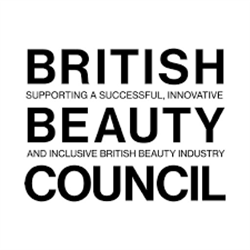
The British Beauty Council’s Sustainable Beauty Coalition has developed the Planet Positive Beauty Guide, user-friendly guidance designed to help consumers determine which beauty products are environment-friendly and sustainably manufactured. The guide is influenced by Provenance’s take on transparency and lists the most common sustainability claims by cosmetics manufacturers about their products. The Planet Positive Beauty Guide has four chapters: Ingredients, Packaging, People, and Sustainable Sourcing.[Image Credit: © British Beauty Council]
CONSUMER & PUBLIC OPINION
A Fifth Of UK Consumers Would Not Buy From Online Stores That Do Not Use Sustainable Packaging
 In the UK, 19% of consumers said they would not buy from online retailers that do not use environment-friendly packaging. Results of Macfarlane Packaging’s 2021 unboxing survey, the sixth edition of the company’s annual consumer research, revealed that 88% of the 600 respondents said they increased their online shopping during the pandemic, with 64% of them saying they would continue doing so in the future. Also, 30% of consumers said they expect to increase their online shopping. Other findings of the survey include 96% of consumers preferring home delivery over click and pickup, while 73% believed their purchases came in recyclable packaging.[Image Credit: © Macfarlane Packaging]
In the UK, 19% of consumers said they would not buy from online retailers that do not use environment-friendly packaging. Results of Macfarlane Packaging’s 2021 unboxing survey, the sixth edition of the company’s annual consumer research, revealed that 88% of the 600 respondents said they increased their online shopping during the pandemic, with 64% of them saying they would continue doing so in the future. Also, 30% of consumers said they expect to increase their online shopping. Other findings of the survey include 96% of consumers preferring home delivery over click and pickup, while 73% believed their purchases came in recyclable packaging.[Image Credit: © Macfarlane Packaging]
MARKET NEWS
Albéa Tubes Provides PCR Encore Tubes For EXpackUSA Manufacturing Customers
 Manufacturing contractor eXpackUSA has chosen the PCR Encore coextruded tube from Albéa Tubes as a sustainable packaging solution for clients from the cosmetics and personal care industries. Albéa’s tube is manufactured in Reynosa, Mexico.[Image Credit: © Albéa Tubes]
Manufacturing contractor eXpackUSA has chosen the PCR Encore coextruded tube from Albéa Tubes as a sustainable packaging solution for clients from the cosmetics and personal care industries. Albéa’s tube is manufactured in Reynosa, Mexico.[Image Credit: © Albéa Tubes]
NAPCOR’s 2020 Report Reveals Strong Growth In Recycled PET Use In US And Canada
POLICY, REGULATION & LEGAL
UK Prime Minister Calls For Reduction In Plastic Use Instead Of Recycling
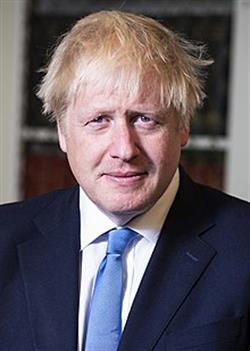
Recycling proponents have criticized UK Prime Minister Boris Johnson’s statement that people should reduce their consumption of plastic products instead of relying on recycling. Johnson made the statement while answering questions from children ahead of the COP26 climate change summit. Some of the points made by critics include the conflict between Johnson’s statement and government policy on plastic recycling and his failure to appreciate the important role played by plastic packaging.[Image Credit: © Wiki Commons]
INNOVATION & TECHNOLOGY
Digital Passports Help Encourage Manufacturers To Adopt Reusable Packaging
 The use of Digital Passports, as well as mandatory reporting, can help promote reusable packaging. It will also provide a way to audit and enable government agencies to emphasize waste prevention and to recognize packaging as an asset instead of a single-use, landfill-bound waste. Digital Passports can encourage manufacturers to invest in reusable packaging by demonstrating the cost-effectiveness of doing so and complying with health and safety standards using “batch coding and evidencing cleaning checks”. Digital Passports can also function as boundary objects that support collaboration and detect areas of miscommunication among participants throughout the value chain.[Image Credit: © designwebjae]
The use of Digital Passports, as well as mandatory reporting, can help promote reusable packaging. It will also provide a way to audit and enable government agencies to emphasize waste prevention and to recognize packaging as an asset instead of a single-use, landfill-bound waste. Digital Passports can encourage manufacturers to invest in reusable packaging by demonstrating the cost-effectiveness of doing so and complying with health and safety standards using “batch coding and evidencing cleaning checks”. Digital Passports can also function as boundary objects that support collaboration and detect areas of miscommunication among participants throughout the value chain.[Image Credit: © designwebjae]
CPI Opens Sustainable Packaging Innovation Center At Liverpool Science Park
.png&width=250&height=192)
Centre for Process Innovation Limited (CPI) has opened a new office at the Liverpool Science Park in the UK with funding support from the office of Liverpool City Region Metro Mayor Steve Rotheram. CPI said the pre-development funding will help in the creation of a £60 million National Packaging Innovation Centre. The packaging innovation facility could give the UK a leadership position in the £1 trillion global packaging market, as well as in developing sustainable packaging technologies.[Image Credit: © Centre for Process Innovation Limited]
EMERGING IDEAS, THEMES & TRENDS
Anya Hindmarch Collaborates With Solent Group, Sainsbury’s, Waitrose To Launch Next-Generation Shopping Bags
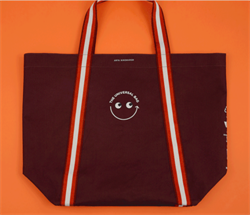
Fashion designer and entrepreneur Anya Hindmarch has partnered with Solent Group, Sainsbury’s and Waitrose to create The Universal Bag, a new generation of shopping bag. The project is open to all supermarkets worldwide, allowing them to integrate their brands in the bag. Sainsbury’s and Waitrose, as founding members, are the first retailers to launch their versions of The Universal Bag. The bag is made from 100% recycled plastic and is guaranteed to last at least 10 years.[Image Credit: © Anya Hindmarch]
RESEARCH
Organizations Need To Help Consumers Adopt Circular Practices To Promote Sustainability
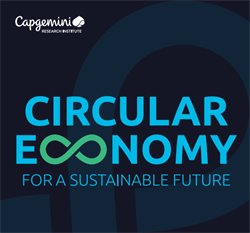 Companies need to take necessary and urgent actions to bring about the circular economy, according to a Capgemini report, “Circular Economy for a Sustainable Future”. The report highlights the need for organizations to “radically rethink their business models” to include alternative sources of revenue other than sales. They also need to integrate circular design into their manufacturing, and to collaborate more closely with internal partners, as well as with governments, academics, and other experts. They also need to keep in mind that consumers face major “motivational and practical roadblocks” to accepting circular practices even though they are aware of the “problem of waste”.[Image Credit: © Capgemini ]
Companies need to take necessary and urgent actions to bring about the circular economy, according to a Capgemini report, “Circular Economy for a Sustainable Future”. The report highlights the need for organizations to “radically rethink their business models” to include alternative sources of revenue other than sales. They also need to integrate circular design into their manufacturing, and to collaborate more closely with internal partners, as well as with governments, academics, and other experts. They also need to keep in mind that consumers face major “motivational and practical roadblocks” to accepting circular practices even though they are aware of the “problem of waste”.[Image Credit: © Capgemini ]
Coca-Cola, PepsiCo, Unilever Top List Of World’s Plastic Polluters
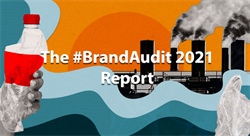 For the fourth consecutive year, Coca-Cola Company and PepsiCo are the world’s top sources of plastic pollution, according to the environmentalist group Break Free From Plastic. Details of the organization’s global Brand Audit report revealed Coca-Cola accounted for more plastic pollution than the next top 2 polluters combined. Also, for the first time since the annual audits began in 2018, Unilever is ranked as the number 3 top polluter, trading places with Nestlé, which moved to fourth. Results of the study also highlighted the shortcomings of the companies’ plastic recycling efforts and other sustainability initiatives, and Unilever’s position is a significant source of embarrassment as a principal partner for COP26.[Image Credit: © Break Free From Plastic]
For the fourth consecutive year, Coca-Cola Company and PepsiCo are the world’s top sources of plastic pollution, according to the environmentalist group Break Free From Plastic. Details of the organization’s global Brand Audit report revealed Coca-Cola accounted for more plastic pollution than the next top 2 polluters combined. Also, for the first time since the annual audits began in 2018, Unilever is ranked as the number 3 top polluter, trading places with Nestlé, which moved to fourth. Results of the study also highlighted the shortcomings of the companies’ plastic recycling efforts and other sustainability initiatives, and Unilever’s position is a significant source of embarrassment as a principal partner for COP26.[Image Credit: © Break Free From Plastic]
OTHER NEWS
Unilever, Other Multinationals Support Burning Of Plastic Waste As Cement Industry’s Pro-Sustainability Effort
 Unilever PLC is helping finance a project that aims to recycle plastic waste by burning to provide power to a cement manufacturing facility in Indonesia. The project is part of a trend involving multinational corporations and their efforts to burn more plastic waste in cement kilns. Environmentalists and other critics have asserted that burning plastic waste is harmful to the planet and sustainability efforts. Supporters claim, however, that burning plastic waste is environment-friendly and helps the cement industry reduce harmful impacts on the environment.[Image Credit: © Reuters]
Unilever PLC is helping finance a project that aims to recycle plastic waste by burning to provide power to a cement manufacturing facility in Indonesia. The project is part of a trend involving multinational corporations and their efforts to burn more plastic waste in cement kilns. Environmentalists and other critics have asserted that burning plastic waste is harmful to the planet and sustainability efforts. Supporters claim, however, that burning plastic waste is environment-friendly and helps the cement industry reduce harmful impacts on the environment.[Image Credit: © Reuters]
Copyright 2026 Business360, Inc.

